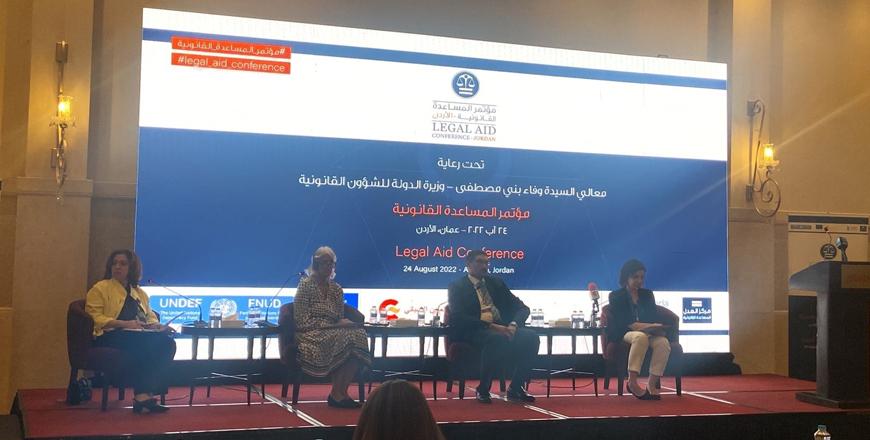You are here
‘Development of legal aid key to protect most vulnerable’
By Batool Ghaith - Aug 24,2022 - Last updated at Aug 24,2022
AMMAN — Legal aid’s must be improved in its efficiency and effectiveness in order to achieve the Sustainable Development Goals (SDGs), according to the second edition of the Legal Aid Conference hosted by the Justice Centre for Legal Aid (JCLA).
The newly launched justice sector strategy for 2022-2026 includes several strategic improvements to the efficiency of legal aid in the Kingdom, according to Judicial Council Secretary General Ali Al Missimi.
“The government looks forward to reaching an effective national legal aid system with high quality legal services and specific mechanisms for evaluating service,” he said.
The strategic goals include developing legislation regulating legal aid, activating optional and obligatory legal aid, raising awareness of civil society, developing infrastructure, and supporting and developing the Legal Aid Directorate, according to Missimi.
Senior human rights adviser Christina Meineche-Chalev said that access to justice is an “expression of human rights”, as it is intrinsically linked to the right to effective justice, equality before the courts, fair trials, and equality and non-discrimination in legal matters.
“Access to justice is fundamental to democracy as it ensures that people can hold decision makers accountable,” she added.
Hadeel Abdel Aziz, executive director at the JCLA, discussed the challenges which people, especially those on low incomes, face in accessing legal aid, which include the high cost of litigation and the mandatory presence of a lawyer.
She stressed the need for a new justice sector strategy to improve the comprehensiveness, integration and responsiveness of legal aid for the most vulnerable.
“We need a roadmap to achieve what we are aiming for, which is why we must invest in justice,” she added.
Regarding legal aid for the most at-risk groups and victims of violence, Suheir Al Tobassi, a sitting judge on the Judicial Council, said that the criminal justice system does not address victim’s rights.
“In addition to establishing a network of trained lawyers to help these victims, the legal aid system must include clear text on how to support victims, as well as institutionalising legal awareness and education system for legal aid,” Tobassi recommended.
She highlighted the importance of lawyers in representing the victim before the law, noting that it is “a source of safety and trust, and additional protection for the victim”.
According to Tobassi, the individuals most vulnerable to violence are children, women, the elderly, persons with disabilities, refugees, human trafficking victims and immigrant workers.
Linda Al Kalish, director of Tamkeen for Legal Aid, highlighted Jordan’s efforts in preserving the rights of immigrant workers, despite many challenges.
The difficulties of protecting immigrant workers revolve around a fear of resorting to the law, and the lack of efficient translation services between the workers and the judiciary, Kalish said.
Related Articles
AMMAN — An understanding that often, only those with money and connections have access to strong legal representation led the Justice Centre
AMMAN — The absence of a sustainable national legal aid system to represent the financially challenged enhances their vulnerability and thre
AMMAN — The second edition of the Legal Aid Conference, organised by the Justice Centre for Legal Aid (JCLA) took place in Amman on Wednesda
















